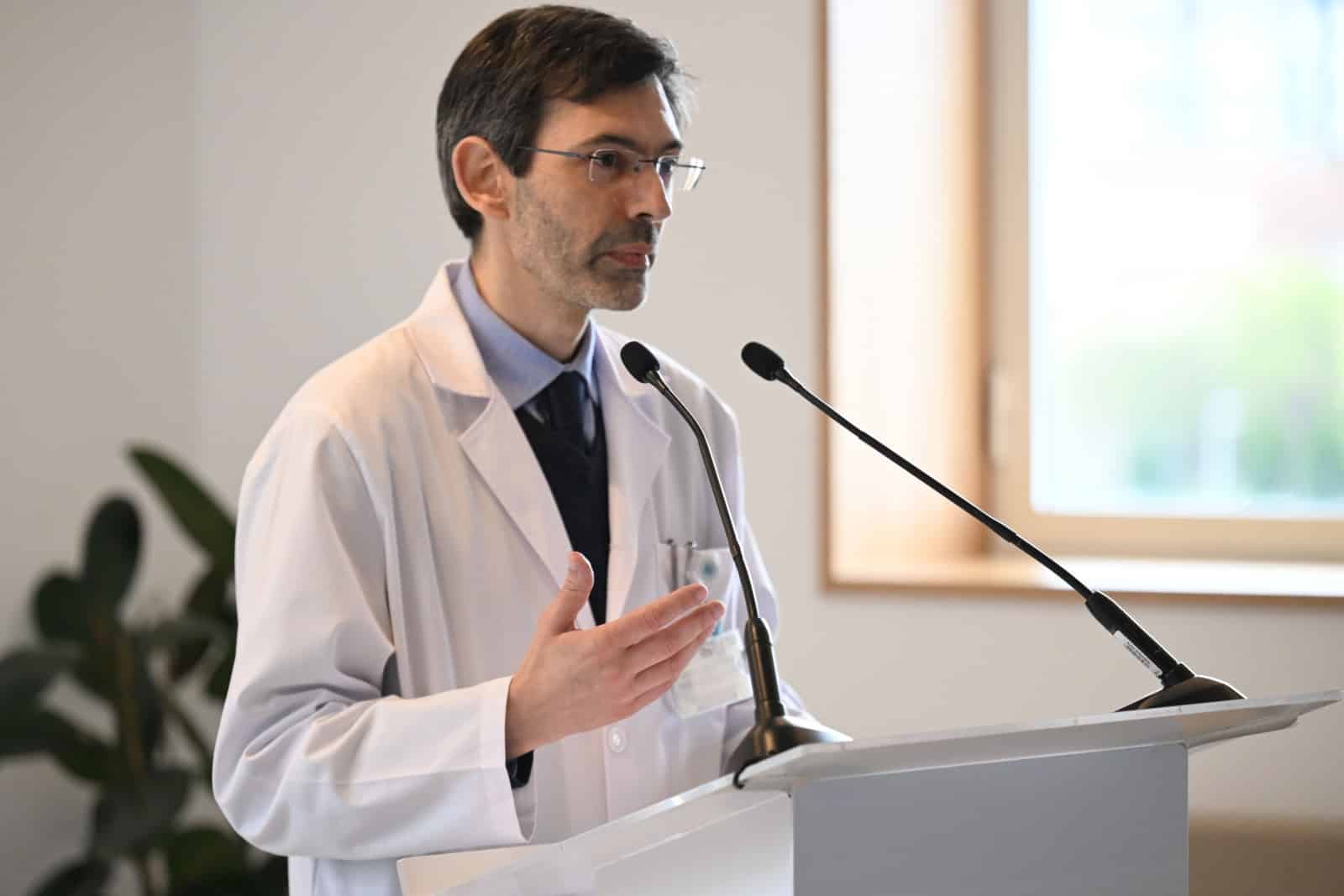The president of the Portuguese Oncology Institute (IPO) in Porto, a 50-year-old institution, highlighted clinical research and precision medicine as “critical bets” in attracting investment, differentiating care and retaining professionals.
“Cancer is a disease that has a tendency to increase (…). This is an area that requires much greater investment in knowledge that will lead us to better understand the disease and, in this way, develop therapeutic weapons to combat it, offering patients more years with quality of life,” said Júlio Oliveira.
As part of the 50th anniversary of the IPO do Porto, the president of a cancer center recognized by the European Organization of Cancer Institutes (OECI), highlighted the commitment of this specialist hospital to integrating research into the continuum of care “not sporadically, but systematically”.
“For example, the percentage of patients included in clinical trials is a variable for assessing the quality of large centers that want to be reference centers in oncology,” he said.
IPO do Porto has 481 patients included in clinical trials and 26 of these are in phase 1.
“It’s about giving patients access to new medicines, new therapeutic strategies. This has an impact on improving the organization, improving the standard of care and, consequently, improving the health results that are obtained,” he added.
In an interview with the Lusa news agency, Júlio Oliveira, who has been president of the IPO do Porto since 2022 and a doctor at the institution since 2007, also highlighted the focus on precision medicine in oncology, an area that allows patients, adults and children, who reach the last line of conventional treatment and from then on no longer have conventional options, to have access to innovative technologies.
“IPO do Porto has developed the first precision medicine program in oncology in Portugal (…). We try to obtain a sort of identity card for the tumour, characterizing it biologically to try to find weaknesses in it that can be used to guide treatments. This is done in the context of a clinical trial or using drugs that may be available commercially, but which are only approved for diseases other than the one the patient has,” he described.
This program involves professionals from pathological anatomy, human genetics, oncology, pediatrics, surgery, clinical pharmacology, biologists, pharmacists, among others.
Around half of the patients being discussed in a service open to the whole country are from other hospitals.
And 10 to 12% of the patients discussed had some molecular alteration that could predispose them to a response to targeted treatment.
Speaking to Lusa, Júlio Oliveira highlighted the regular coordination with centers in France and Spain, as well as, more recently, Norway, Sweden, Finland and Denmark.
In addition to precision medicine based on the genomic characterization of tumors, there is a commitment to nuclear medicine, in which radiopharmaceuticals are used to treat cancer.
“This is a recent investment, but it’s the result of decades of work (…). We’re going to need more investment if we’re to continue to grow,” said the president, noting that last week the IPO do Porto included the world’s first patient in a phase 1 clinical trial with a radiopharmaceutical.
“This is an achievement for the country. It’s an achievement for the Porto IPO,” he summed up.
Stressing that “this isn’t bench research”, but “technology used for the benefit of the patient”, Júlio Oliveira said that “more than expanding the frontiers of knowledge, innovative technologies are being given access to cancer patients in Portugal” and left a warning.
“This is only possible and only makes sense if there is a vision of organization in the Portuguese health ecosystem, essentially in the SNS,” he said.
Still on the subject of organization, access to care and attracting investment, Júlio Oliveira said that several experts from IPO do Porto are participating at European level in drawing up a strategy aimed at reducing asymmetries in access to cancer care.
“In Portugal, this asymmetry of care also exists. From screening, which we know is much more widespread in the north than in the south, to the diagnosis and treatment of cancer (…). The concept that is being consolidated is the ‘Comprehensive Cancer Care Network’, in other words, the creation of comprehensive oncology care networks,” he described.
Arguing that “the treatment of cancer cannot be seen in an island logic”, Júlio Oliveira considered that “the standard of care to be offered should not depend on the point of entry into the system”.
“This is more than referencing. It’s about certification. There can be no difference in access if you enter the hospital in Bragança or a center in Castelo Branco or somewhere in Porto, Lisbon or Coimbra (…). This may seem like a somewhat utopian vision, but any utopia is only a utopia until it has a place. And the Porto IPO has managed to overcome many utopias,” he concluded.
Organized into 12 pathology clinics, the Oporto IPO sees around 10,000 new patients a year, with around 56,000 being followed up.









